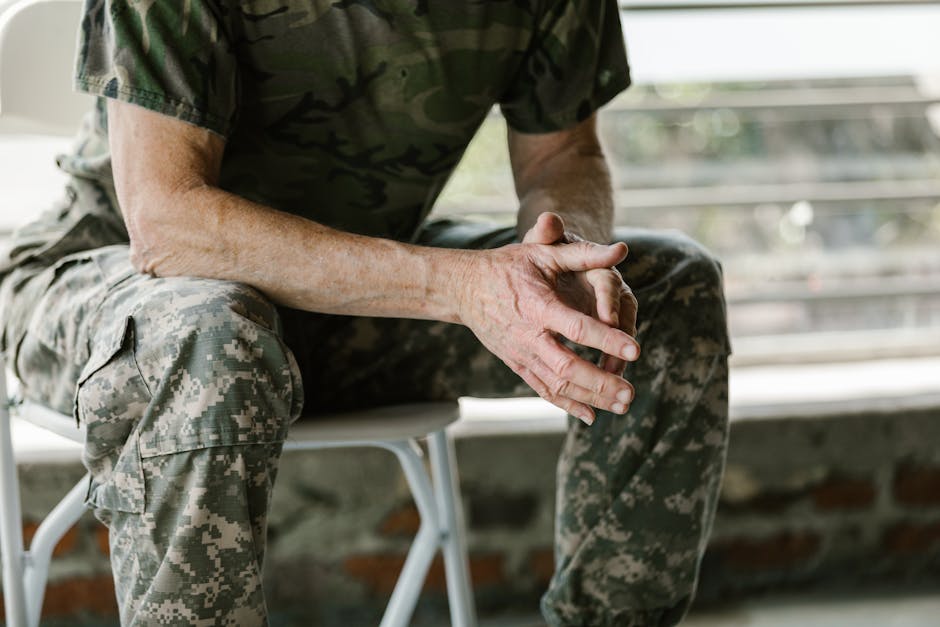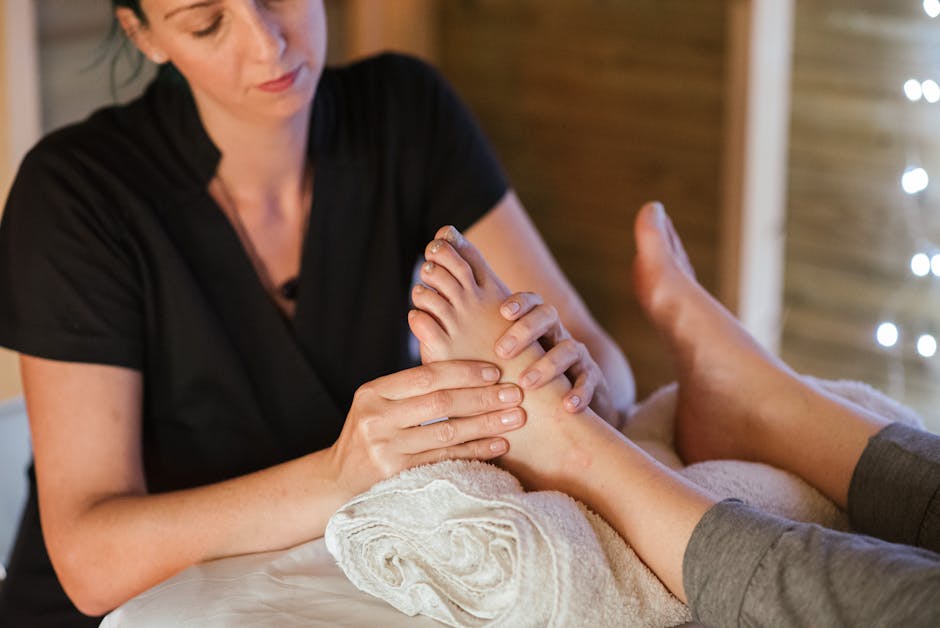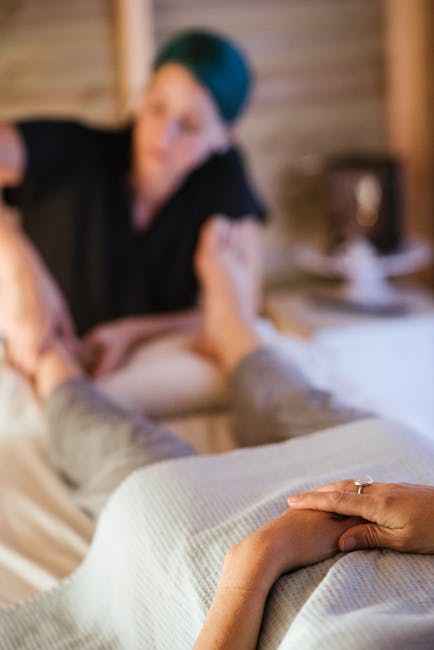Feeling like a bundle of nerves? You’re not alone. Anxiety can be a real buzzkill, but guess what? There are ways to tame that anxious beast. Stick around, and you’ll discover some life-changing tips to kick anxiety to the curb.
Key Takeaways
- Understanding what anxiety is and how it affects your life is the first step to managing it.
- Nutritional choices can significantly impact anxiety levels.
- Lifestyle adjustments, including exercise and sleep, play a crucial role in anxiety relief.
- Mindfulness and relaxation techniques are powerful tools for calming the mind.
- Social and emotional support can provide comfort and reduce anxiety symptoms.
- Exploring alternative therapies and supplements can offer additional relief.
- There are practical hacks for immediate anxiety relief.
- Recognizing when professional help is needed is essential for long-term well-being.
Understanding Anxiety and Its Impact
Definition of Anxiety
Anxiety is like that uninvited guest who just won’t leave. It’s a natural response to stress, but when it overstays its welcome, it can become a disorder. It’s your body’s way of saying, “Hey, something’s up,” and it gears you up to face a challenge.
The Negative Effects of Anxiety
Physical Health Implications
Anxiety isn’t just in your head; it can mess with your body too. From a racing heart to sweaty palms, it’s like your body’s running a marathon without your permission.
Mental Health Implications
Mentally, anxiety can be a real party pooper. It can lead to trouble concentrating, feeling tense, and sometimes you might even feel like you’re losing control.
Impact on Daily Life
When anxiety takes the wheel, it can drive your daily life off course. It might make you avoid situations, or you could find yourself stressing over the ‘what ifs.’

Nutritional Strategies to Ease Anxiety
Importance of a Balanced Diet
You are what you eat, right? Well, your diet can be a game-changer when it comes to managing anxiety. A balanced diet keeps your body running smoothly, and that includes your brain.
Foods to Include in an Anti-Anxiety Diet
Omega-3 Rich Foods
Omega-3s are like your brain’s best friends. They’re found in fish like salmon and can help keep your mood steady.
Magnesium-Rich Foods
Magnesium is like a chill pill for your body. It’s in foods like spinach and helps keep your nerves relaxed.
Antioxidants and Their Role
Antioxidants are the body’s cleanup crew. They’re in berries and other fruits and help protect your body from stress.
Foods to Avoid
High Sugar Intake
Sugar can give you a quick high, but the crash that follows can leave you feeling jittery and anxious.
Excessive Caffeine
Too much caffeine can make you feel like you’ve had ten cups of coffee, even if you haven’t. It’s a stimulant that can amp up anxiety.

Lifestyle Changes to Combat Anxiety
Physical Activity Benefits
Exercise Types and Frequency
Getting your sweat on can help blow off some steam. Whether it’s yoga or running, regular exercise can help reduce anxiety levels.
The Role of Sleep
Sleep is like a reset button for your brain. Getting enough Z’s can help keep anxiety in check.
Minimizing Phone Use and Screen Time
Your phone can be a major stressor. Cutting down on screen time can help you unwind and relax.
Creating Boundaries and Learning to Say No
Setting limits is key. Saying no sometimes means saying yes to a calmer you.
Avoiding Procrastination
Putting things off can lead to a mountain of stress. Tackling tasks head-on can help keep anxiety at bay.

Mindfulness and Relaxation Techniques
Mindful Moves: Yoga Flow for Anxiety
Yoga isn’t just about bending like a pretzel; it’s a mindful way to ease anxiety.
Practice Deep Breathing and Diaphragmatic Breathing
Breathing exercises can help you catch your breath, literally. They’re a quick way to dial down the stress.
Guided Imagery and Visualization
Picture this: a calm you. Visualization can transport you to a more peaceful state of mind.
The Power of Music and Playlists
Music can be a balm for the anxious soul. A good playlist can soothe your nerves.
Spending Time in Nature
Mother Nature has her own way of helping you relax. A walk in the park can do wonders for your anxiety.

Social and Emotional Support Strategies
Spending Time with Friends and Family
Your squad can be your anchor. Quality time with loved ones can help you feel supported and less anxious.
The Importance of Cuddling and Physical Touch
A hug can go a long way. Physical touch releases feel-good hormones that combat anxiety.
Benefits of Pet Companionship
Pets are more than just cute; they can be your furry therapists, helping to ease anxiety.
Journaling for Emotional Release
Putting pen to paper can help you let go of pent-up emotions and reduce anxiety.

Alternative Approaches to Anxiety Relief
The Use of Supplements
Herbal Remedies
Herbs like chamomile can be like a warm, calming embrace for your nervous system.
Vitamins and Minerals
Vitamins like B-complex and minerals such as zinc can play a role in managing anxiety.
Virtual Reality Therapy
Clinical Effectiveness
VR therapy is like a high-tech escape that can help you confront and manage your fears in a controlled environment.
Application in Medical Procedures
Using VR can also help reduce anxiety during medical procedures, making them less intimidating.
Practical Anxiety Hacks for Immediate Relief
Diaphragmatic Breathing Technique
This breathing trick can help you calm down in a jiffy. It’s all about deep belly breaths.
Simple Stretches to Release Tension
Stretching isn’t just for athletes. A few simple moves can help release the tension that anxiety brings.
Using Language to Reframe Thoughts
The way you talk to yourself matters. Positive self-talk can help shift your mindset away from anxiety.
Engaging in Self-Care Activities
Self-care isn’t selfish. It’s essential for keeping anxiety at a manageable level.

When to Seek Professional Help
Recognizing the Signs That You Need Help
Sometimes, anxiety can be too much to handle alone. Knowing when to seek help is a sign of strength, not weakness.
Types of Professional Treatment
Therapy Options
Talking it out with a therapist can provide new insights and strategies for dealing with anxiety.
Medication Considerations
Medication can be a helpful tool when used under a doctor’s supervision.
The Role of a Support Network in Seeking Help
Having people to lean on can make the journey to managing anxiety a lot less daunting.
The Bottom Line on Anxiety Relief
Summarizing Key Strategies
From diet to exercise and mindfulness, there are many ways to tackle anxiety.
Encouraging a Holistic Approach
Combining different strategies can provide the best results.
Emphasizing Consistency and Patience in Anxiety Management
Managing anxiety is a marathon, not a sprint. Patience and consistency are key.
Conclusion
Recap of Major Points
We’ve covered a lot, from understanding anxiety to practical hacks for immediate relief.
Encouragement to Take Action
Don’t let anxiety rule your life. Take the first step today.
Final Thoughts on Overcoming Anxiety
Remember, you’re not alone, and with the right strategies, you can find relief from anxiety.
Soothe Your Mind: An FAQ Guide to Relieving Anxieties
What are some common signs of anxiety?
Common signs of anxiety include feelings of nervousness or restlessness, increased heart rate, rapid breathing or hyperventilation, sweating, trembling, feeling weak or tired, trouble concentrating, insomnia, and gastrointestinal problems. These symptoms can vary in intensity and may not be present in every individual experiencing anxiety.
Can anxiety be cured?
Anxiety is a natural response to stress and can’t be ‘cured’ in the traditional sense, but it can be effectively managed. Many people live fulfilling lives with their anxiety under control through therapy, medication, lifestyle changes, and various coping strategies. It’s important to consult with a healthcare professional to determine the best approach for managing anxiety.
What lifestyle changes can help reduce anxiety?
Lifestyle changes that can help reduce anxiety include regular physical exercise, maintaining a healthy diet, getting enough sleep, practicing relaxation techniques such as deep breathing, meditation, or yoga, reducing caffeine and alcohol intake, and establishing a consistent daily routine. These changes can contribute to overall well-being and reduce the severity of anxiety symptoms.
How does therapy help with anxiety?
Therapy, particularly cognitive-behavioral therapy (CBT), helps individuals with anxiety by teaching them to identify and challenge negative thought patterns and behaviors that contribute to their anxious feelings. Therapists can also provide coping strategies and relaxation techniques to manage anxiety symptoms. Therapy offers a safe space to explore the underlying causes of anxiety and develop personalized tools for managing it.
Are there medications that can help with anxiety?
Yes, there are several types of medications that can help manage anxiety, including selective serotonin reuptake inhibitors (SSRIs), serotonin-norepinephrine reuptake inhibitors (SNRIs), benzodiazepines, and others. Medications can be particularly effective when combined with therapy. It’s essential to discuss the options with a healthcare provider to find the most suitable medication and dosage.
What natural remedies are there for anxiety?
Natural remedies for anxiety include herbal supplements such as valerian root, lavender, and chamomile. Mindfulness practices, acupuncture, and aromatherapy are also considered beneficial. However, it’s important to consult with a healthcare professional before trying natural remedies, as they can interact with medications and may not be appropriate for everyone.
Can anxiety lead to other health issues?
If left unmanaged, chronic anxiety can contribute to other health issues such as heart disease, high blood pressure, diabetes, and may exacerbate gastrointestinal problems. Anxiety can also lead to mental health disorders like depression. Therefore, addressing anxiety is crucial for maintaining overall health and preventing the development of additional health concerns.
How can I support someone who is experiencing anxiety?
Supporting someone with anxiety involves being patient, understanding, and non-judgmental. Encourage them to talk about their feelings, listen actively, and offer to help them find professional support if needed. Avoid pressuring them to ‘just get over it’ and instead, acknowledge their feelings as valid. Simple acts of kindness and understanding can make a significant difference.
Is it normal to experience anxiety?
Yes, experiencing anxiety is a normal part of life, especially during times of stress or uncertainty. It becomes a concern when the anxiety is constant, overwhelming, or interferes with daily activities. In such cases, it’s important to seek professional help to manage the symptoms and improve quality of life.
Can children and teenagers experience anxiety?
Children and teenagers can indeed experience anxiety. It may manifest differently than in adults, with symptoms such as irritability, avoidance of certain activities, unexplained physical complaints, and changes in school performance. It’s important for parents and caregivers to recognize these signs and seek appropriate help for their children.



